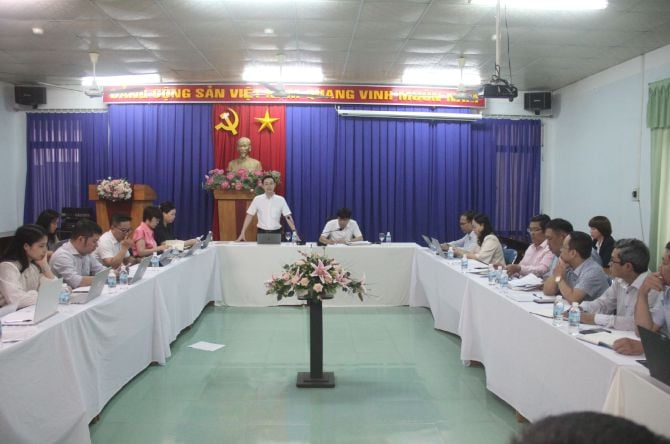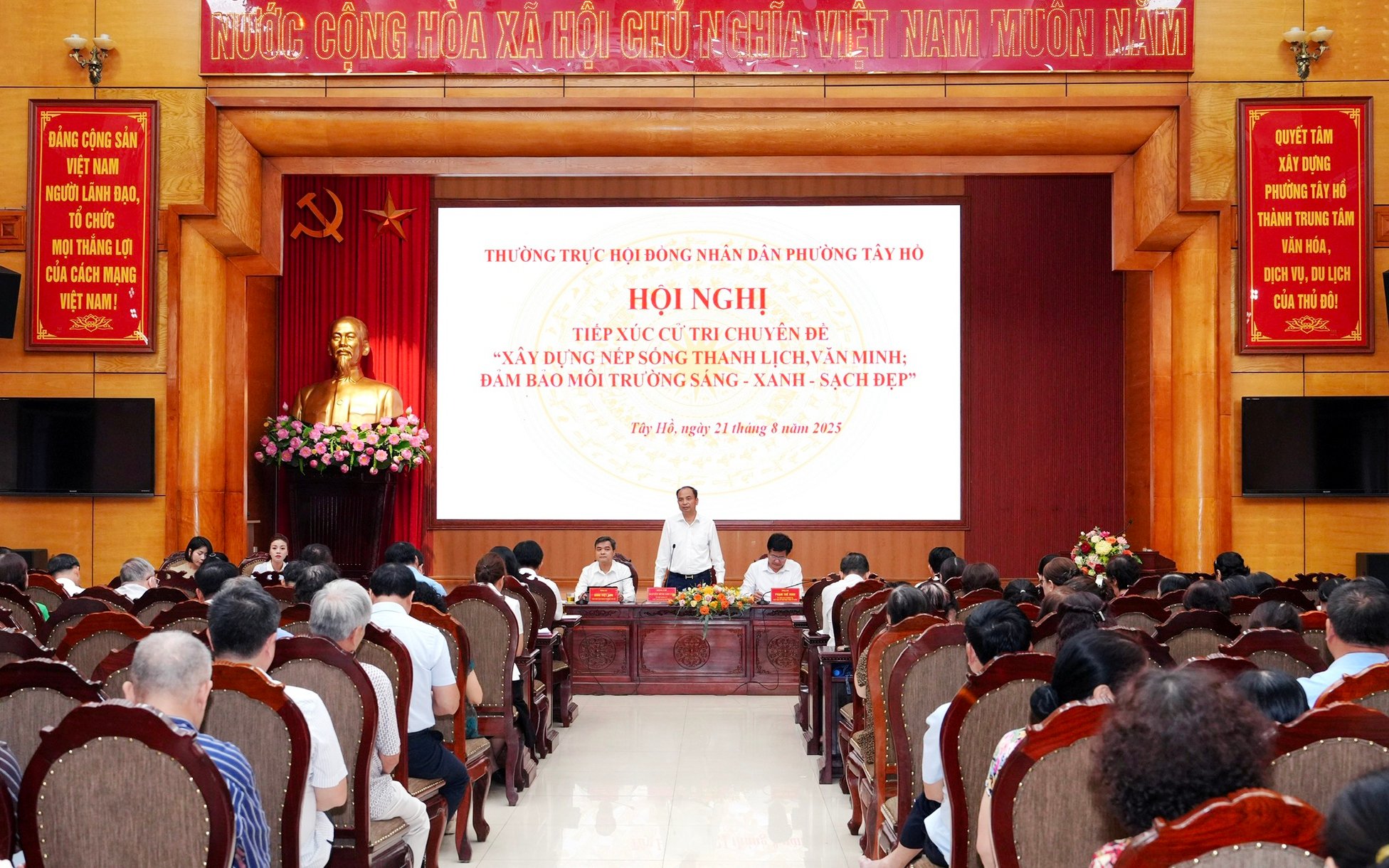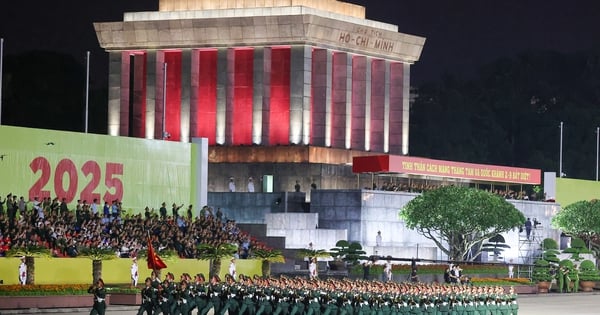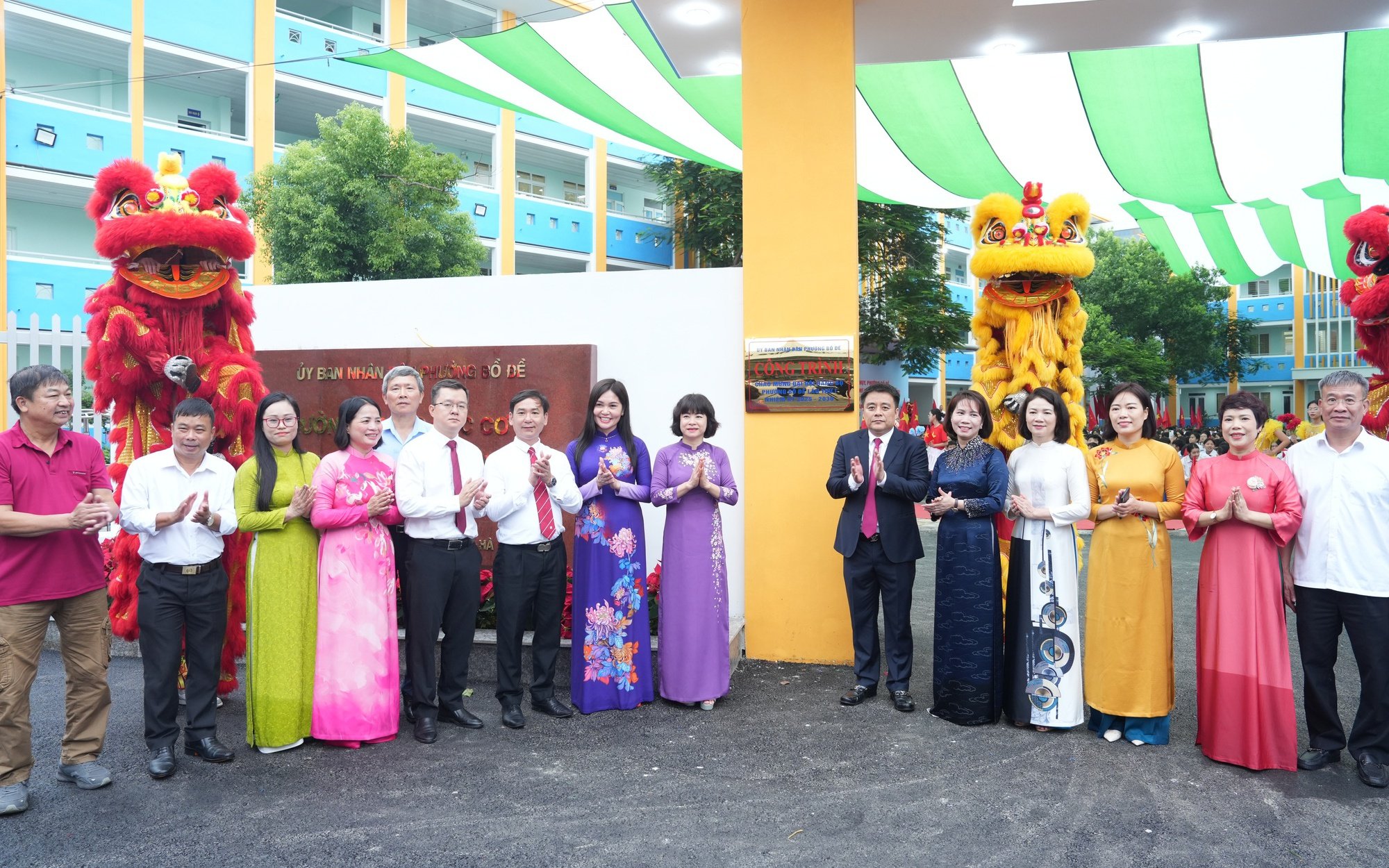In Incheon (Korea), Mr. Tran Hung Huy - Chairman of the Board of Directors (BOD) of Asia Commercial Joint Stock Bank (ACB ) - officially spoke at the discussion session of APEC Public-Private Dialogue (PPD) with the topic "Building a sustainable system to adapt to demographic fluctuations" held on August 11.
This is the first time a Vietnamese bank has been invited to attend and speak at the APEC public-private dialogue forum, which brings together policymakers, academics and businesses from 21 member economies .
With this milestone, ACB affirms its role as a pioneering voice of Vietnamese enterprises in the APEC forum - not only adapting, but also proactively leading transformations for a sustainable, humane and comprehensive future.
Mr. Tran Hung Huy speaks at the discussion session of APEC Public-Private Dialogue
APEC PPD is a series of dialogues that aim to bring together the public sector, business and academia to discuss and develop solutions to common regional challenges. In 2025, PPD will take place within the framework of the SOM3 Senior Officials Meeting in the Republic of Korea, focusing on two major topics: responding to demographic changes and cooperation in the field of artificial intelligence.
Moderated by leading professors and experts in the region, the discussion session "Building a sustainable system to adapt to demographic changes" focused on the impact of population aging trends on key areas such as labor, education , finance, technology; as well as the role of connecting the public and private sectors, creating effective cooperation mechanisms.
The discussion session was attended by leading professors and experts from Japan, Korea, and Thailand.
During the discussion, ACB Chairman emphasized that demographic change is no longer a trend in the distant future, but is directly shaping Vietnam’s socio-economic development. As a leading commercial bank, ACB sees this impact clearly in three key areas: the labor market with a shrinking workforce and increasing demand for new skills; education with the need for lifelong learning; and finance with changes in saving, borrowing and investing behaviors. He said that instead of just responding, financial institutions can proactively seize opportunities and become a driving force for transformation through developing small and medium-sized enterprises, supporting women entrepreneurs, expanding financial inclusion through digital innovation, and integrating financial education into service platforms.
He also argued that the financial system needs to be designed not only for the “economic cycle” but also for the “life cycle” of each person. This means accompanying customers from the stage of learning, starting a business, developing their career to retirement, through products, services and solutions suitable for each stage. He also emphasized the role of banks in connecting the public and private sectors, through funding re-skilling, supporting mobile security benefits and investing in inclusive growth areas such as green energy, women-led businesses and the rural economy, as ACB has been and will continue to do.
From a regional cooperation perspective, Mr. Huy suggested that APEC could increase efficiency by harmonizing digital identification standards, recognizing skills among economies, and sharing successful models in financial education, thereby promoting cross-border cooperation to jointly respond to demographic challenges.
As the first Vietnamese enterprise invited to participate and officially speak at APEC PPD, ACB not only shared practical perspectives in the field of finance and banking, but also contributed a long-term approach to adapting to social changes. ACB's participation also sent a message that banks not only play the role of providing capital, but also act as a connecting infrastructure that helps turn policies into concrete actions. In the context of Vietnam and many APEC economies entering a period of aging population and labor migration, banks become the intersection between the public and private sectors, helping to promote inclusive financial solutions, improve skills and expand development opportunities for all generations.
In recent times, ACB has also continuously demonstrated many efforts in connecting the public and private sectors, realizing policies such as Resolution 57 and Resolution 68 of the Politburo. The Bank has signed a strategic cooperation agreement with Ho Chi Minh City National University to build a sustainable innovation ecosystem, and implemented a preferential credit package worth VND40,000 billion to support small and medium enterprises in digital transformation, sustainable development and market expansion. These activities not only contribute to promoting policy implementation but also affirm ACB's role in accompanying the Government and the business community to develop the country's economy.
This is also a testament to ACB's strategic orientation in integrating ESG into business operations, considering it not a trend, but a core operating culture, where the bank accompanies the community by listening and committing to taking real action to create sustainable values for the community.
Source: https://nld.com.vn/chu-tich-hdqt-acb-tran-hung-huy-gop-tieng-noi-tren-dien-dan-khu-vuc-apec-196250814142647621.htm


































![[Photo] An Phu intersection project connecting Ho Chi Minh City-Long Thanh-Dau Giay expressway behind schedule](https://vstatic.vietnam.vn/vietnam/resource/IMAGE/2025/8/21/1ad80e9dd8944150bb72e6c49ecc7e08)






























![[Photo] Politburo works with the Standing Committee of Hanoi Party Committee and Ho Chi Minh City Party Committee](https://vstatic.vietnam.vn/vietnam/resource/IMAGE/2025/8/21/4f3460337a6045e7847d50d38704355d)
































Comment (0)